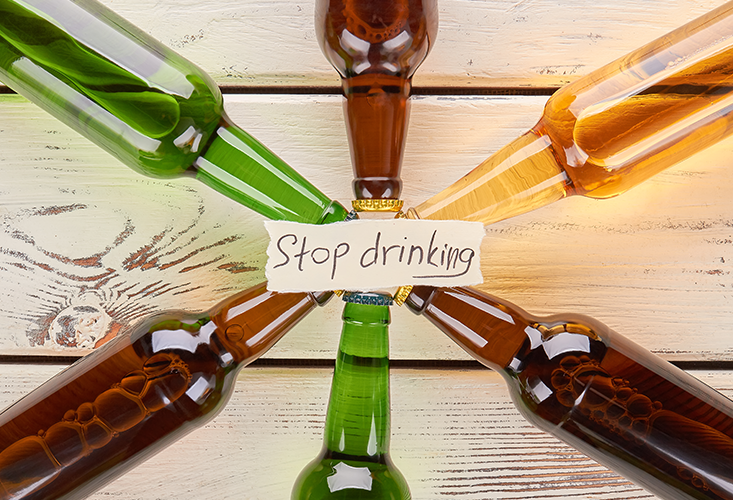Hair loss is a pretty common problem, with lots of different causes. Apart from things like stress and genetics, a healthy and balanced diet also plays a big part in hair loss. It's normal for each person to lose a certain amount of hair every day, but if you lose more than that, it can lead to permanent hair loss. These days, people who experience this situation often prefer hair transplantation. But it's important to remember that you need to take precautions before and after the operation. It's important to remember that eating well and eating the right foods can make life a lot easier before the operation. It's also really important to avoid bad habits like smoking and drinking too much. Smoking and alcohol can have a negative impact on your body before and after a hair transplant. Firstly, they can affect the way your body circulates, slow down the healing process after the procedure, and increase the risk of infection. This can reduce the nutrition of the transplanted hair follicles, which could lead to hair loss after the operation. It's worth mentioning that smoking and alcohol can also have a negative impact on hair growth. Smoking reduces the amount of oxygen in the body, which can prevent hair follicles from getting the nourishment they need. This can lead to hair loss after transplantation. Additionally, the consumption of alcohol and tobacco prior to undergoing a hair transplantation procedure can result in an increased stress response within the body, which may potentially lead to hair loss. The ingestion of these substances can impede the absorption of essential vitamins and minerals within the hair follicles, thereby hindering the growth of healthy hair. It is therefore crucial to limit the consumption of alcohol and tobacco in order to maintain optimal hair growth. Alcohol consumption can affect the blood clotting process, causing the blood to flow thinner and faster. This can increase bleeding and negatively affect the healing process in surgical procedures such as hair transplantation. Thinner than normal blood during and after the operation can make it more difficult for doctors to control bleeding during the surgical procedure and increase the risk of post-operative bleeding. In addition, alcohol consumption can dilate blood vessels and increase blood pressure. This can affect blood circulation during the operation, preventing tissues from receiving enough oxygen and prolonging the healing process. For these reasons, it is essential to keep away from alcohol consumption both before and after the hair transplant procedure to ensure the best possible outcome and accelerate the healing process. It is important to note that smoking and alcohol consumption can negatively affect wound healing after hair transplantation. Smoking reduces the amount of oxygen in the body, causing blood vessels to constrict, which can slow wound healing and even increase the risk of infection. Alcohol consumption, on the other hand, has several different mechanisms that negatively affect wound healing. For example, alcohol consumption can weaken the immune system and increase the risk of infection. Furthermore, alcohol consumption can slow wound healing by impairing blood circulation. Furthermore, alcohol consumption can cause the skin and tissues around the wound to dry out, which can impede wound healing. The wound healing process is of great importance after surgical procedures such as hair transplantation. To help wounds heal better after hair transplantation, it's best to avoid smoking and drinking alcohol. This will speed up the wound healing process and reduce the risk of infection. Furthermore, smoking and alcohol consumption in the first few days after hair transplantation may increase the risk of bleeding. It is suggested that patients avoid smoking and drinking alcohol in the days following hair transplantation. It is crucial to prioritize the risks associated with alcohol consumption before and after surgical procedures. Alcohol has a number of adverse effects, including: For these reasons, it is important to avoid or at least limit alcohol consumption before and after surgical procedures. This increases the chances of the operation being successful and can speed up the recovery process. To increase success, it is important to avoid or at least limit alcohol consumption before and after the hair transplant procedure. This increases the chances of the operation being successful and speeds up the healing process. However, the requirements after hair transplantation are not limited to quitting alcohol and smoking. According to expert advice, it is also very important not to touch the hair transplant area and not to use accessories such as hats. Furthermore, consuming foods with high nutritional value will accelerate the healing process of the wounds formed during the hair transplantation process and will form the basis for the healthy growth of the transplanted follicles. The pillow used during the procedure is also of great importance. It is advisable to use a small hard pillow to avoid contact with the transplanted area. In addition, the choice of clothing products and dressing process after hair transplantation are among the issues to be considered.The Effect of Alcohol on Blood Clotting
Effect on Scar Healing Rate
Surgical Procedures and the Harm of Alcohol
Increasing Success in Hair Transplantation
Why is it important to avoid alcohol before and after a hair transplant?




